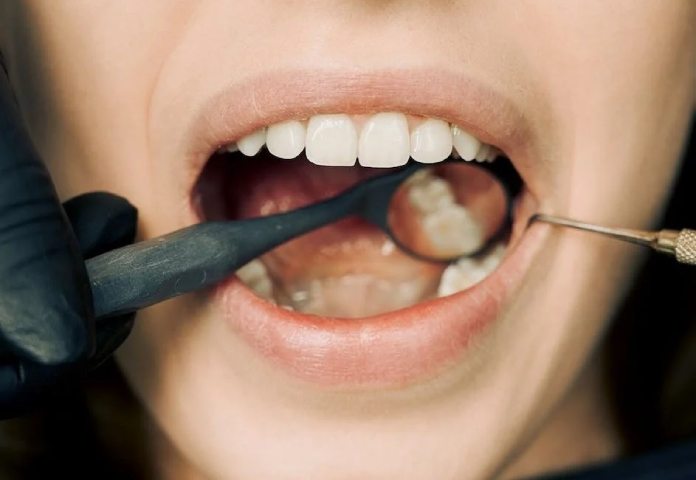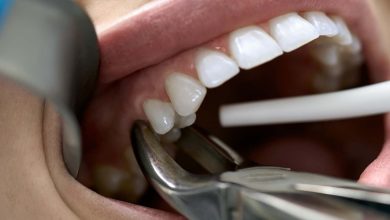How to Alleviate Wisdom Tooth Pain: Expert Tips & Techniques

To get relief from wisdom tooth pain, try over-the-counter pain relievers and gargling with warm saltwater. Wisdom tooth pain can be debilitating and affect your daily activities.
However, there are several easy and accessible remedies that can provide relief. Whether you’re waiting for an appointment with your dentist or trying to manage the pain at home, these solutions can help alleviate the discomfort. By taking over-the-counter pain relievers and rinsing your mouth with warm saltwater, you can reduce inflammation and soothe the affected area.
These simple self-care techniques can provide temporary relief from wisdom tooth pain until you can seek professional dental care.

Credit: www.pezdekdentalcare.com
Understanding Wisdom Tooth Pain: Causes And Symptoms
Wisdom tooth pain can be caused by factors like impaction or infection, leading to discomfort and swelling. Find relief through methods like over-the-counter pain relievers, warm saltwater rinses, and keeping the area clean.
Some individuals experience wisdom tooth pain, which can be quite excruciating. Understanding the causes and symptoms can help alleviate this discomfort. Wisdom teeth are the third molars that typically erupt between the ages of 17 and 25. They often cause pain due to a lack of space in the mouth, which leads to their improper alignment or partial eruption. Common causes of wisdom tooth pain include impaction, where the tooth is trapped beneath the gum line, and infection, which can occur if bacteria enter the area. Identifying the symptoms of wisdom tooth pain is crucial for timely intervention. Signs may include throbbing pain, swelling, tender gums, difficulties in opening the mouth, and even jaw stiffness. Seeking professional dental care is essential to assess the situation and determine the appropriate course of action, such as tooth extraction or oral rinses to alleviate the pain.Expert Tips For Immediate Relief From Wisdom Tooth Pain
When experiencing wisdom tooth pain, there are several methods you can try to find immediate relief. Over-the-counter pain relievers like ibuprofen or acetaminophen can help manage the discomfort and reduce inflammation. Applying ice packs to the affected area can also alleviate pain and reduce swelling. Another option is to use numbing gels or oral rinses, which can provide temporary relief by numbing the area. It’s important to follow proper instructions and dosage recommendations for each method. If the pain persists or worsens, it is advisable to consult a dentist or oral surgeon for further evaluation and treatment. Remember to prioritize good oral hygiene practices, including regular brushing, flossing, and rinsing with mouthwash, to prevent future tooth pain and maintain overall oral health.
Techniques To Alleviate Wisdom Tooth Pain At Home
Relief from wisdom tooth pain can be achieved through various techniques that can be easily performed at home. One effective method is to use saltwater rinses, which help reduce inflammation and pain. Mixing a teaspoon of salt in warm water and gently swishing it around the mouth for a minute can provide temporary relief. Another approach is to adopt gentle brushing and flossing techniques to avoid further irritation and aggravation of the affected area. It is crucial to use a soft-bristled toothbrush and be cautious while cleaning around the wisdom teeth. Additionally, herbal remedies can be used for natural pain relief. Clove oil, for instance, contains natural anesthetic properties that can alleviate discomfort. Applying a small amount of clove oil directly to the affected area with a cotton ball can provide temporary relief from wisdom tooth pain.
When To Seek Professional Help For Wisdom Tooth Pain
Experiencing wisdom tooth pain can be incredibly uncomfortable. In some cases, professional dental intervention may be necessary to find relief. Certain signs indicate the need for immediate attention from a dentist. These include severe, persistent pain, swelling of the gums or face, difficulty opening the mouth, and an unpleasant taste or smell. If you are experiencing any of these symptoms, it is important to schedule an appointment with a dentist as soon as possible.
Dentists have various procedures to address severe wisdom tooth pain. One common treatment is extraction, where the impacted tooth is surgically removed. The dentist may also prescribe pain medication or antibiotics to reduce pain and prevent infection. In more complicated cases such as impacted or partially erupted wisdom teeth, surgical procedures may be required. In such instances, dentists may perform a surgical extraction, uncover the tooth, or remove any obstructions.
When dealing with wisdom tooth pain, it is crucial to consult a dentist when necessary. They can evaluate the situation and provide appropriate treatment to alleviate pain and promote oral health.
Preventive Measures To Avoid Wisdom Tooth Pain
Wisdom tooth pain can be a challenging experience, but there are preventive measures you can take to avoid it. Maintaining good oral hygiene practices is vital in preventing wisdom tooth pain. Regular dental check-ups can help with early detection and prevention of any potential issues. Dietary and lifestyle changes also play a significant role in reducing the risk factors associated with wisdom tooth pain.
To maintain good oral hygiene, it is crucial to brush your teeth twice a day and floss daily to remove any plaque or food particles that may accumulate. Using a mouthwash can further help in killing bacteria and maintaining fresh breath.
Regular dental check-ups provide an opportunity for the dentist to assess the condition of your teeth and identify any underlying issues. Early detection of wisdom tooth eruption or any potential problems can prevent pain and discomfort in the future.
Additionally, adopting a healthy diet by limiting sugary and acidic foods can help in reducing the risk of wisdom tooth pain. Avoiding tobacco products and excessive alcohol consumption also contributes to maintaining overall oral health.
By following these preventive measures, you can greatly reduce the chances of experiencing wisdom tooth pain and promote a healthy smile.
Recovery And Aftercare For Wisdom Tooth Extraction
|
After undergoing wisdom tooth extraction, it is important to follow proper post-operative care instructions for pain management and to ensure a smooth recovery process. Following these guidelines can help in alleviating discomfort and promoting healing: Post-operative care instructions for pain management:
Recommended diet and oral care routines after tooth extraction:
Follow-up appointments and monitoring progress:
|
Frequently Asked Questions On How To Get Relief From Wisdom Tooth Pain
How Do You Make Wisdom Tooth Pain Go Away?
To alleviate wisdom tooth pain, try rinsing your mouth with warm saltwater, applying a cold compress, taking over-the-counter painkillers, using numbing gels or rinses, and practicing good oral hygiene. If the pain persists, consult a dentist for further evaluation and treatment.
How Long Does Wisdom Teeth Pain Last?
Wisdom teeth pain typically lasts for about a week to 10 days.
How Can I Stop Wisdom Tooth Pain At Night?
To alleviate wisdom tooth pain at night, you can try these remedies: rinse your mouth with warm saltwater, apply a cold compress to your cheek, take over-the-counter pain relievers, avoid eating hard or chewy foods, and maintain good oral hygiene.
If pain persists, consult a dentist.
Can Wisdom Tooth Pain Go Away On Its Own?
Yes, wisdom tooth pain may subside on its own temporarily, but it is essential to consult a dentist. Ignoring the pain can lead to further complications like infection or damage to adjacent teeth.
Conclusion
Incorporating these natural remedies and self-care practices can help alleviate wisdom tooth pain. From rinsing with warm saltwater to applying cold compresses, there are various options to choose from. It’s important to consult a dentist for further guidance and to address any underlying issues.
With these tips, you can find relief and promote the healing process. Take charge of your dental health and say goodbye to wisdom tooth pain!




